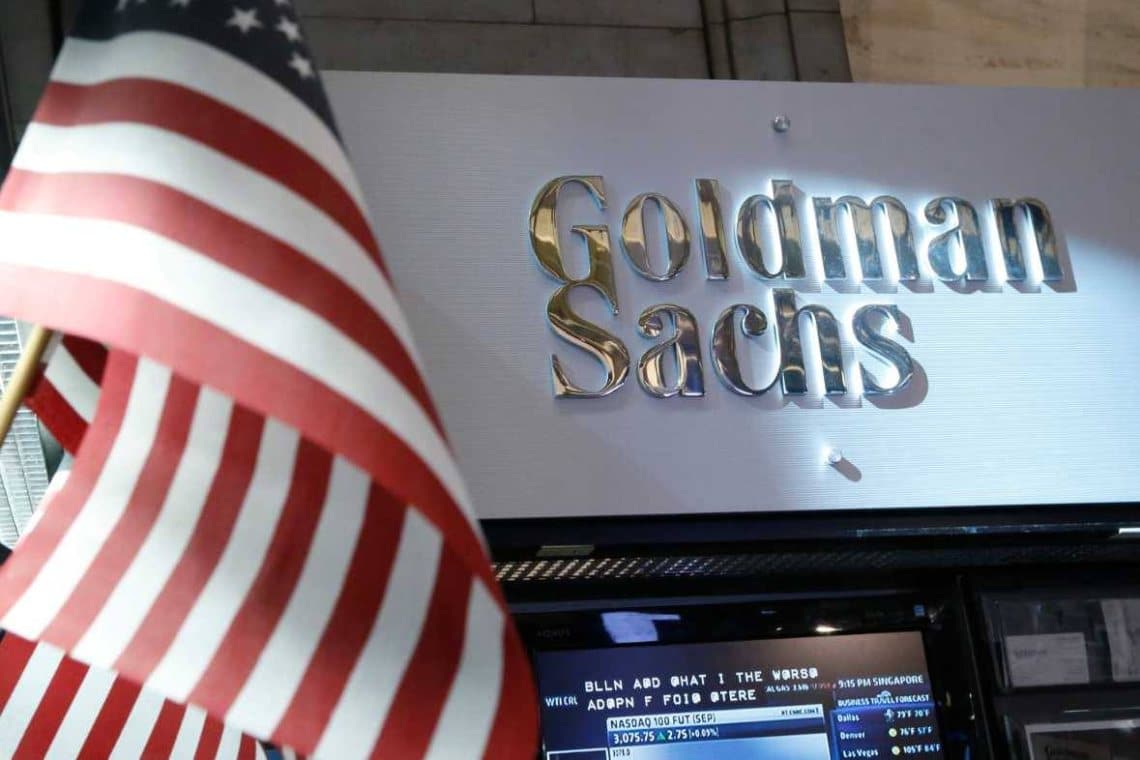According to Mathew McDermott, executive at Goldman Sachs, the approval of Bitcoin spot ETFs is expected to generate an increase in interest from institutional investors in the crypto sector.
In addition, he anticipates significant development and growth in tokenization markets in the coming year. Let’s see all the details below.
Summary
How Bitcoin ETF approvals could redefine the crypto landscape for Goldman Sachs
As anticipated, according to sources, Mathew McDermott, Head of Digital Assets at Goldman Sachs, stated that the potential approval of bitcoin and ether spot exchange-traded funds (ETFs) could increase institutional interest in cryptocurrencies.
Specifically, McDermott explained to Fox Business the following:
“It is first and foremost an expansion and deepening of market liquidity. And what is the reason? The reason is that we are effectively creating tradable institutional products from institutions that do not need to directly interact with the underlying assets. Personally, I think this could pave the way for institutions such as pension funds, insurance companies, and other entities.”
McDermott, however, does not anticipate an immediate change in the landscape with the approval of spot crypto ETFs.
Instead, it foresees a gradual transformation over the following year, if approval is granted.
Currently, over a dozen companies, including well-known financial actors BlackRock and Fidelity, have filed requests for the approval of bitcoin spot ETFs.
The same ones that are waiting for approval from the United States Securities and Exchange Commission.
In the market, there is a growing optimism regarding the possibility that the regulatory authority will finally grant approval to ETFs that will directly invest in bitcoin.
Forecasts on the growth of the crypto market in the next year
Overall, McDermott anticipates an increase in the cryptocurrency market in the coming year.
In particular, driven by the expansion of commercial applications of blockchain and the increased involvement of traditional financial institutions in the sector in the last 12-18 months.
In particular, McDermott emphasized the use case of tokenization, foreseeing significant development in this sector over the next year.
“We will start to see widespread adoption, especially in terms of purchases among investors. This will be possible thanks to the emergence of secondary liquidity on the chain, which represents a key factor and one of the main developments for the next year.”
At the beginning of the year, Goldman Sachs introduced its tokenization platform called GS DAP.
McDermott reported that the private blockchain was used in Hong Kong for the sale of $102 million worth of tokenized green bonds, reducing settlement times from five to one day.
In the past, McDermott had indicated the possibility of extending the use of GS DAP to other assets, such as alternatives, fund shares, derivatives, and private equity.
The Goldman Sachs digital asset team, consisting of 70 people at the beginning of this year, could further expand.
In addition, McDermott has stated that he is open to new hires “depending on the circumstances”. The team had only four members in 2020 when McDermott took over.
An analysis on possible Bitcoin and Ether ETFs
As we know, analysts predict that the Securities and Exchange Commission (SEC) will approve spot Bitcoin ETFs in January 2024, following the approval of Bitcoin futures ETFs in 2021 and Ether ETFs in 2023.
With traditional financial institutions like BlackRock requesting spot ETFs on Ether, approval seems likely. However, it may only occur after that of Bitcoin ETFs, expected by the end of 2024 or the beginning of 2025.
If approved, Bitcoin and Ether ETFs could attract millions of new investors, but there are doubts about the feasibility of Ether ETFs.
The disparity between the investment theses of Bitcoin and Ether is evident, as Ether serves as “gas” in the Ethereum ecosystem, used for staking and transaction validation.
An Ether ETF does not allow holders to participate in the Ethereum network, making it a more complex investment option compared to a Bitcoin ETF.
Furthermore, Ether’s value proposition, tied to its utility on the Ethereum platform, makes it difficult to market spot ETFs that only provide price exposure.
While Bitcoin ETFs are based on the perspective of Bitcoin as a store of value, Ether ETFs pose challenges as they do not take into account its decentralized characteristics or monetary qualities.
The analysis reflects that, despite the expected approval of Bitcoin ETFs, the underlying investment theses of Bitcoin and Ether will determine the demand and effectiveness of such financial products.
The controversy surrounding Ether ETFs highlights the challenges in designing products that reflect the peculiarities of each cryptocurrency, with possible significant impacts on the market.




